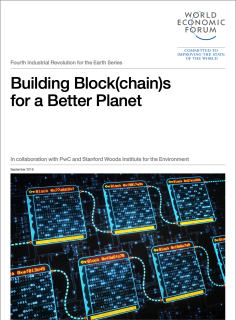
The majority of the world’s current environmental problems can be traced back to industrialisation, particularly since the “great acceleration” in global economic activity since the 1950s. While this delivered impressive gains in human progress and prosperity, it has also led to unintended consequences. Issues such as climate change, unsafe levels of air pollution, depletion of forestry, fishing and freshwater stocks, toxins in rivers and soils, overflowing levels of waste on land and in oceans, and loss of biodiversity and habitats are all examples of the unintended consequences of industrialization on our global environmental commons.
As the Fourth Industrial Revolution gathers pace, innovations are becoming faster, more efficient and more widely accessible than ever before. Technology is becoming increasingly connected, and we are now seeing a convergence of the digital, physical and biological realms. Emerging technologies, including the Internet of Things (IoT), virtual reality and artificial intelligence (AI), are enabling societal shifts as they seismically affect economies, values, identities and possibilities for future generations.
There is a unique opportunity to harness the Fourth Industrial Revolution – and the societal changes it triggers – to help address environmental issues and transform how we manage our shared global environment. Left unchecked, however, the Fourth Industrial Revolution could have further unintended negative consequences for our global commons. For example, it could exacerbate existing threats to environmental security by further depleting global fishing stocks, biodiversity and resources. Furthermore, it could create entirely new risks that will need to be considered and managed, particularly in relation to the collection and ownership of environmental data, the extraction of resources and disposal of new materials, and the impact of new advanced and automated machines.
